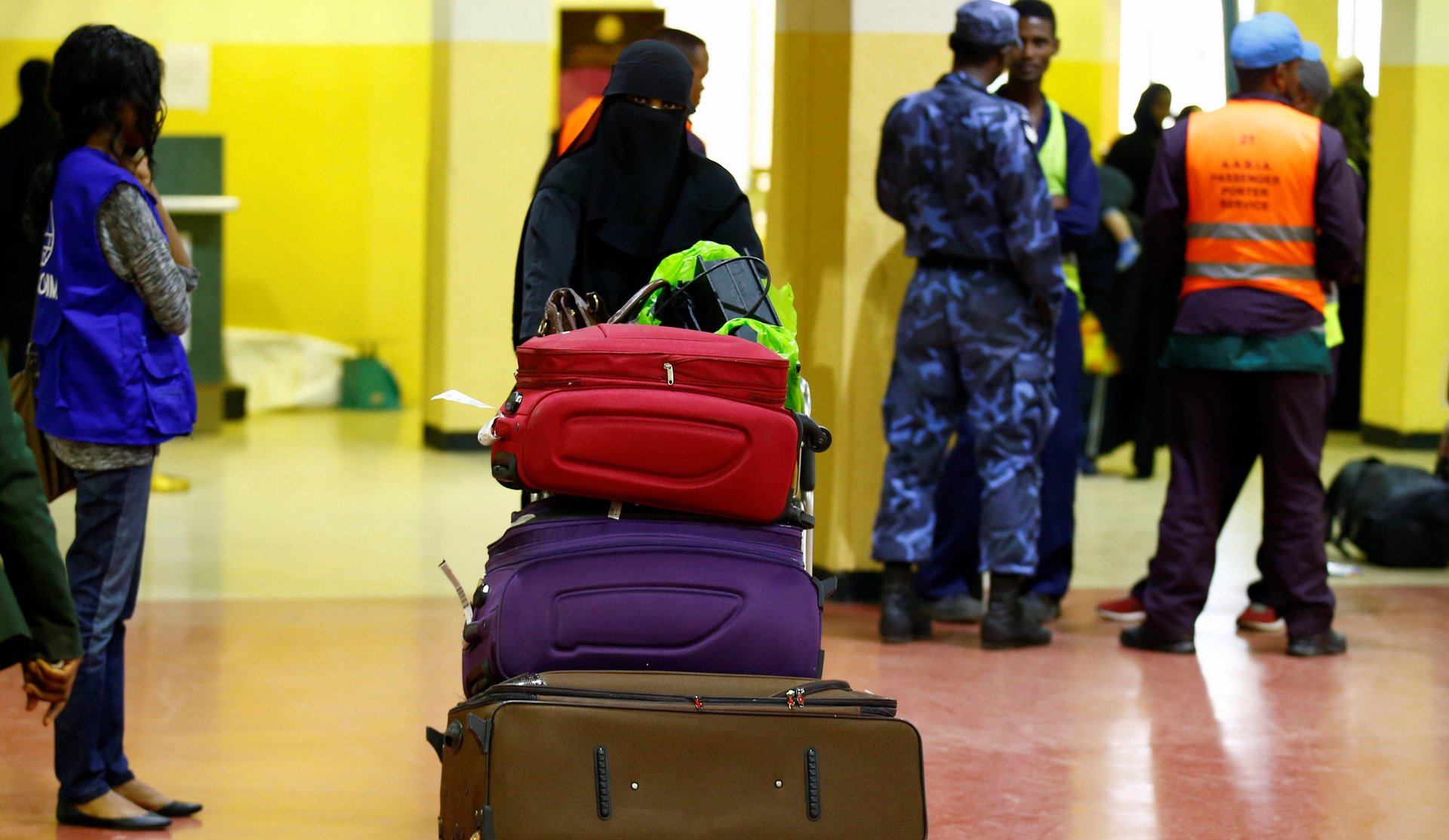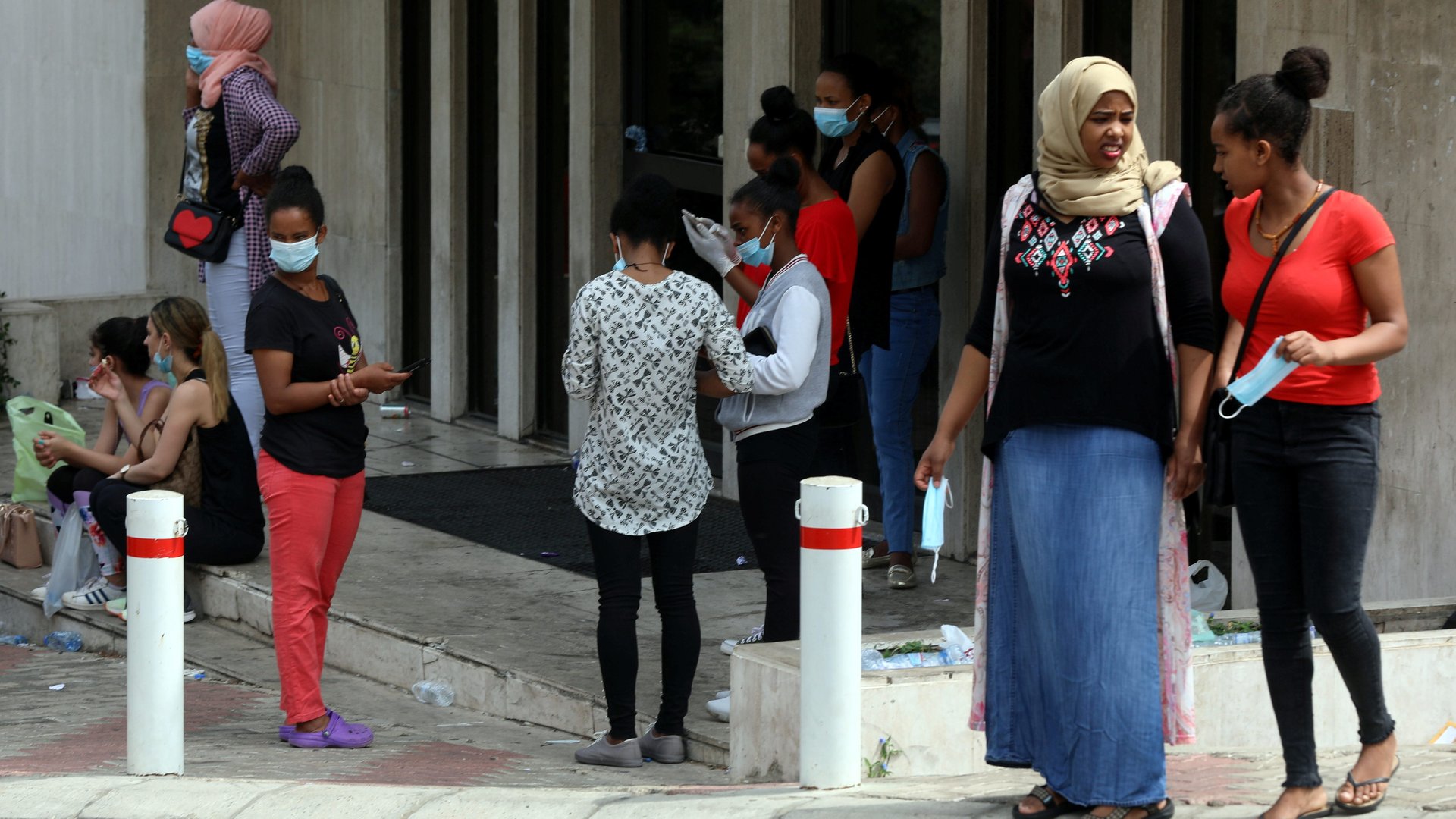Ethiopian worker migrants are stranded in worsening conditions in Saudi Arabia
A new investigation from Amnesty International has backed up previous reporting on the worsening, life-threatening treatment of Ethiopian migrants stranded in Saudi Arabia including prisoners who are chained in pairs, confined at all hours in a crowded detention center, forced to use an open floor as toilets, little medical care, beatings and several deaths.


A new investigation from Amnesty International has backed up previous reporting on the worsening, life-threatening treatment of Ethiopian migrants stranded in Saudi Arabia including prisoners who are chained in pairs, confined at all hours in a crowded detention center, forced to use an open floor as toilets, little medical care, beatings and several deaths.
“Pregnant women, babies and small children are held in these same appalling conditions, and their detainees said they knew of children who had died,” says Marie Forestier, researcher on refugee and migrant rights at Amnesty. “We are urging the Saudi authorities to immediately release all arbitrarily detained migrants, and significantly improve detention conditions before more lives are lost.”
Most of the victims were expelled from Yemen by Huthi authorities and Amnesty has called for the Ethiopian government to aid with the repatriation and reintegration of its citizens and for Saudi Arabia to take immediate actions to improve conditions of its prisons.
This comes as Ethiopia remains adamant it is doing all it can to bring its citizens home, including the return of 34,000 migrants since April, including 3,998 returnees from Saudi Arabia which Amnesty acknowledged in its report and while it also highlights the travel restrictions that is ongoing because of the Covid-19 pandemic, that the recent success of bringing the migrants home can be emulated to bring more of them home.
“The evolution of Ethiopian migrant returnees from the Kingdom of Saudi Arabia from 2017 to date, including during the pandemic period, underlines the urgency of ensuring robust reintegration efforts,” explains Tsion Teklu, state minister of Foreign Affairs in an interview with Quartz Africa. “As well as sustained preventative actions at community level, if we want the existing vicious circle is to be broken once and for all.”
With high unemployment and poverty within Ethiopia, thousands of young Ethiopian migrants often take a dangerous trek through various nations and across the Mediterranean in search of work. Oil-rich Saudi Arabia is one of the favorite destinations for those willing to take on often labor-intensive or domestic employment. Many do this to support their dependent families at home in Ethiopia and often have to pay smugglers for a chance to reach to their desired destination.
But getting to these countries and finding work has also come with regular reports of physical mistreatment and exploitation by employers and sometimes not even being paid. The global pandemic has forced Ethiopia and the Saudis to have to confront the system.
The government of prime minister Abiy Ahmed has been under pressure to repatriate thousands of Ethiopian migrants stranded in several Gulf nations, including in Saudi Arabia and Lebanon. In Beirut for instance, thousands remain stranded with little support, most duped and dumped outside the Ethiopian Embassy by their workers who later refuse to pay them under the Kafala sponsorship system that affords them little safety net and inability to pay for a flight ticket to Ethiopia.

There has been a closer relationship between Ethiopia and Saudi Arabia under Abiy Ahmed, including the role the kingdom played in securing a peace deal with once arch-enemy Eritrea. There has also been a growing financial investment in Ethiopia for infrastructure, agricultural and energy projects across the country.
Human Rights Watch has called for its elimination of the Kafala system and in addition, for the release of the detained.
“Ethiopian migrants remain in detention in the most appalling conditions, lacking in sanitation, food and clothing and sometimes subjected to abuse such as beatings. For over five months, thousands have been languishing in detention and Saudi Arabia needs to urgently release these people, prioritizing the most vulnerable, especially the pregnant women and children”, says Nadia Hardman, refugee and migrant rights researcher at Human Rights Watch.
Sign up to the Quartz Africa Weekly Brief here for news and analysis on African business, tech and innovation in your inbox